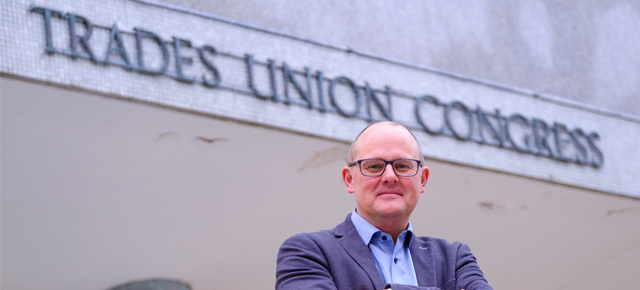New report aims to address ‘gaping hole’ in the government’s recently published net zero strategy – a plan for achieving modal shift away from cars

Photo: ©Jess Hurd
A new report released by the Trades Union Congress proposes a £9.9bn annual investment plan for public transport networks across England and Wales.The plan aims to help the UK achieve its target to cut emissions by 68% by 2030, meet net zero targets and boost the UK economy.
The investment plan – produced for the TUC by Transport for Quality of Life – is based on the combination of reducing car mileage by 20% (with 10% of that achieved by modal shift to public transport), increasing bus and tram journeys by 120%, and increasing rail journeys by 80%. The TUC claims its plan would require an average of £9.9bn in annual capital expenditure up to 2035 and the additional operating cost of expanding the network to such an extent would reach £18.8bn annually by 2030.
The TUC aims to address what it claims is a “gaping hole” in the government’s recently published net zero strategy. It claims this did not explain how to achieve the modal shift away from cars that “Investing in public transport will help us meet net zero targets” is necessary in order to achieve net zero targets. “Public transport improvements on this scale would greatly expand travel horizons for millions of people,” added the TUC. “Better public transport does not just mean more trains and buses, it means better lives.”
TUC general secretary Paul Nowak added: “Investing in public transport will help us meet net zero targets and reduce the threat of catastrophic climate change. And it creates jobs throughout England and Wales, boosts the economy in every community, and improves everyone’s quality of life.”
Investing in public transport will help us meet net zero targets
“With this report, we’ve done the work that Conservative ministers should have done with their empty and incompetent net zero strategy.”
The TUC’s plan would create 140,000 new jobs working directly in bus, tram, and rail operation and a further 830,000 jobs in manufacture, construction, and infrastructure for buses and trams up to 2035, supporting up to 1.8 million jobs indirectly through the rail investment.
It estimates such a plan would boost annual GDP by £52.1bn by 2030 through productivity gains, including GDP growth from construction work and supply chains across the period of capital expenditure to 2035.
The TUC believes that the investment plan could fund the completion of both branches of HS2, Northern Powerhouse Rail including connection to HS2, the Midlands Rail Hub, and electrification of the full rail network.
The report also backs what are a growing number of calls for a minimum level of service for Britain’s buses. In this instance the TUC backs proposals made by CPRE, the countryside charity, last year of at least an hourly bus service for every settlement with at least 200 people (PT263).
The TUC concludes that in 2020 a fifth of UK households had no access to a car, rising to 35% in the lowest income bracket. It believes that the investment plan will extend inclusion by facilitating better access to
work, public services, retail and leisure.
This story appears in the latest issue of Passenger Transport.
DON’T MISS OUT – GET YOUR COPY! – click here to subscribe!








